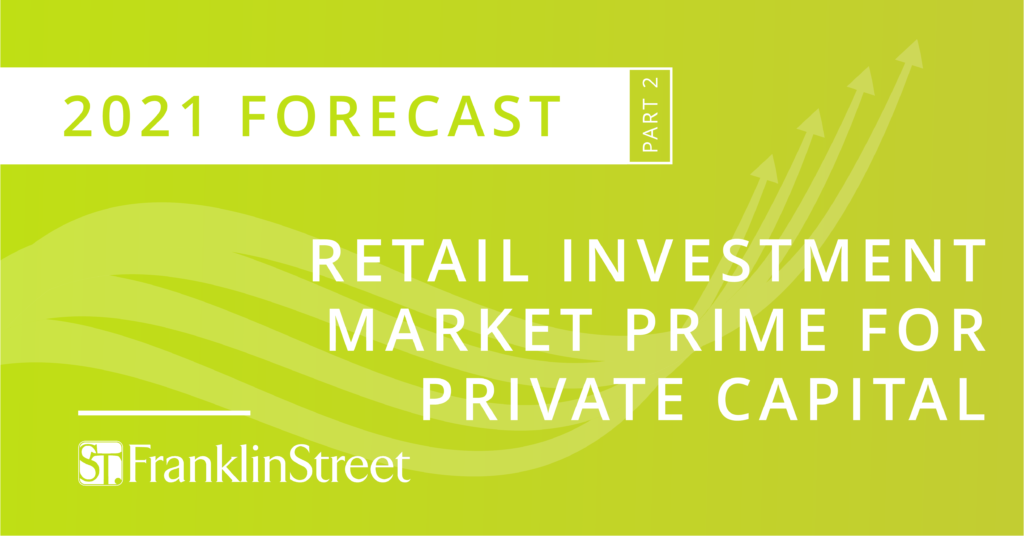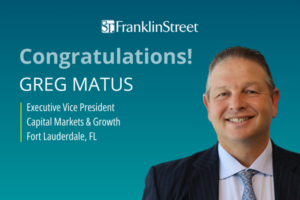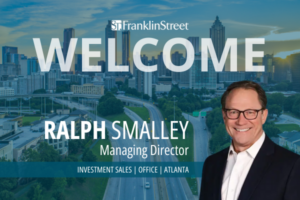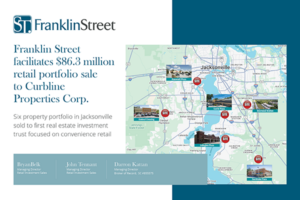As COVID-19 and rising competition from e-commerce challenged the retail market in 2020, it’s no surprise that investment in retail real estate took a hit. However, while the retail market will continue to face hurdles in 2021, certain groups of buyers and sellers are well-positioned to benefit from the current environment.
Franklin Street’s retail investment sales team had a strong year in 2020 and expects the market to perform significantly better in 2021, as the retail sector rebounds. Below, two of our firm’s leading investments sales experts offer their insight and predictions for the year ahead:
Greg Matus, Senior Vice President, Investment Sales

“For owners of quality retail properties who want to access their equity, now is a great time to sell. Although buyers are continuing to proceed with caution, well-performing retail assets are in high demand due to very limited inventory in the marketplace.
We can expect retail investment sales activity to pick up significantly in the second half of 2021, as there’s a lot of capital out there causing pent-up demand.
Properties with strong streams of income are achieving cap rates just as high, if not higher, than they were pre-pandemic. This is especially true for single-tenant properties and smaller strip centers in the $1 to $5 million range.
While financing may be tricky until underwriters can see a clear end to the pandemic, private equity investors are eager to buy, creating an ideal situation for owners of these types of retail properties.”
John Tennant, Senior Director, Retail Investment Sales

“The retail sector will see continued store closures in 2021 as retailers pivot to more online sales, potentially causing vulnerable, undercapitalized tenants to close their businesses as traffic continues to decline. During the latter half of 2021, some of this vacancy will be absorbed by non-retail tenants, especially in the B and C tier centers.
For buyers, the bottom line is that despite the current challenges facing the retail market, there are still many opportunities to acquire stable, income-producing assets – especially if you have cash in hand.
As institutional investors continue pull away from non-core assets and urban markets, where a recovery could take significantly longer, private capital investment will be the main driver in 2021. We are already seeing private equity and venture capital funds seeking to finance new retail ventures as long as the returns are commensurate with the risk.
This increased private capital activity, combined with loosening COVID restrictions, should ultimately lead to a bounce back in transaction volume over the course the year.”
Read part 1 of this blog series on the retail leasing market here.




